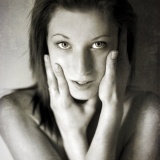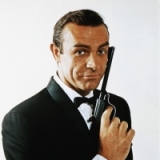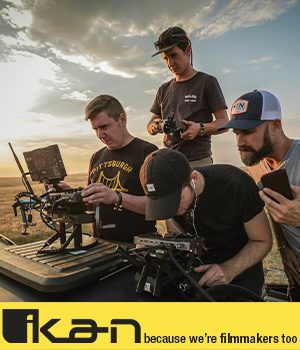- Forum
- General Discussion | Introductions | Off Topic Forum
- Photography General Discussion
- Converting in RAW vs Exposure compensation
Converting in RAW vs Exposure compensation
-

- Stealthy Ninja
- Moderator
-
- Fuji X stuff and a 1DsIII for some reason
- Followers: 982
- Posts: 16300
-
Points:
6837
Post #382283
william_cpa wrote:
Stealthy Ninja wrote:
william_cpa wrote:
Leilanee wrote:
william_cpa wrote:
Leilanee wrote: I've only read about 2/3 of this discussion, but one thing that keeps coming to mind on the "why shoot MM" front is this:
Why do people drive stick? Automatic cars are easy, they're less distracting, and they get you from point A to point B almost flawlessly by making all the transmission-related decisions on its own. Sure, maybe on the occasional hill your car gets confused and works the engine a bit differently than you would, but automatic transmission is pretty solid.
Answer: it's fun.
I shoot MM only, but not because I'm trying to be snobby. I've used Aperture priority mode and SS priority mode and I much prefer MM because I'm in control.
But this is old news, that's what everyone else here keeps saying. And I much agree. But the auto/manual car analogy came to mind while reading.
I also shoot manual for one other reason previously mentioned: sometimes the camera's decision is not the vision I had in mind, so I would rather tell it everything by setting my shutter speed, then my aperture, then adjusting my ISO, than by fiddling with exposure compensation.
But to each their own.
I do understand what you are saying about MM. I have a question about your reference to 'being in control'. are you able to say what control you have in MM that is absent from AP perhaps? That would represent a technical benefit.
I'm not acknowledging any technical benefit, simply that I prefer it.
I probably pay the least technical attention to my camera of anyone who has posted in this thread. When I take a picture, I rarely pay attention to what my light meter tells me (unless I forget to adjust my settings and my picture is way out of tune then I'll use it once to get the gist). I expose by feel, and if I think the outcome is good, I'll keep with it. I don't spend too much time fiddling with my settings; I do my initial "What do I want my aperture to be" (usually pretty low as I shoot portraits almost exclusively), then "What do I want my consequent shutter speed to be" (I know AP does this, but sometimes I disagree with what my camera chooses and I personally find exposure compensation to be a drag. Especially because my camera does not have a button to adjust exposure compensation, I need to go through a menu to do that. Why would I play around in my menus when I can flick a dial and get my exposure the way I want it?)
Anyway, my point in all this is that I'm not always driven towards technicality when I use my camera, although I like being able to control it in the sense that I mentioned above with the car. I make a quick and simple adjustment and if I like the outcome I keep with it. I don't shoot Manual because I blindly follow someone else's misconceptions of superiority, and I don't do it because that's all I've ever tried; I've shot in aperture priority before and I just didn't like it as much. I think personal preference is a justifiable reason for continuing to use it, and I wouldn't just keep using it because someone told me I should. If I saw reason to shoot in a different mode, I would. Which is how I believe many people here think as well.
Your images show that you have been using a canon xti which has an AV+/- exposure comp button, a canon 7D which has EC constantly adjustable using the rear thumb wheel and a 6D which has the same thumb wheel. You can't adjust EC in the menu on these cameras.
That's assuming the dumb light meter is correctly working. A human can check the light meter and use it as a rough guide, then make adjustments (more than the EC can make) to achieve the perfect result for them. The human brain is superior and much more full of passion (the fuel of art) than a soulless machine.
So technically better? No perhaps not. Spiritually better? Infinitely so.
Au Contraire M. Stealth. In AP my camera sings beautiful songs to me and combs my hair. MM total silence. Not even a cup of tea.
That's because she's feeling neglected.
-

- Leilanee
- Photography Hooked
-
- Canon EOS 6D
- Followers: 96
- Posts: 783
-
Points:
634
Post #382288
Stealthy Ninja wrote: Given that the end result are exactly the same because any of the modes can achieve perfect exposure (all roads can lead to the exact same shutter speed, iso, aperture settings). Therefore the technical benefits of manual come out when the technical limits of the camera's meter and exposure compensation fall sort.
So my answer would be, manual is better when the camera gets confused and it's obvious your brain is better than the camera in whatever particular case. Then you adjust EC or go fully manual. Since EC is just another way to adjust shutter speed or aperture to your liking off a base set by the camera. I'd call this closer to manual than aperture priority or shutter priority et al. You're taking over when you use EC, how is this technically different to using full manual? In that case why not take over completely and use full manual?
Logic
-

- Shadowfixer1
- Photo Elder
-
- Olympus OMD E-M1 MKII
- Followers: 1350
- Posts: 5560
-
Points:
73865
Post #382303
-

- Stealthy Ninja
- Moderator
-
- Fuji X stuff and a 1DsIII for some reason
- Followers: 982
- Posts: 16300
-
Points:
6837
Post #382311
I don't trust machines... I've seen terminator.
-

- william_cpa
- Vendor
-
- Nikon D2X, Canon 5D II, Canon T3i, Nikon D40, 2x Mamiya RB67
- Followers: 139
- Posts: 613
-
Points:
0
Post #382326
Leilanee wrote:
Stealthy Ninja wrote: Given that the end result are exactly the same because any of the modes can achieve perfect exposure (all roads can lead to the exact same shutter speed, iso, aperture settings). Therefore the technical benefits of manual come out when the technical limits of the camera's meter and exposure compensation fall sort.
So my answer would be, manual is better when the camera gets confused and it's obvious your brain is better than the camera in whatever particular case. Then you adjust EC or go fully manual. Since EC is just another way to adjust shutter speed or aperture to your liking off a base set by the camera. I'd call this closer to manual than aperture priority or shutter priority et al. You're taking over when you use EC, how is this technically different to using full manual? In that case why not take over completely and use full manual?
Logic
I have to say I love this. It has me smiling over my breakfast. I don't think I remember reading a statement before that was so utterly committed to not understanding the camera. Either this is a trap and you are toying with me, M. Stealth, or you are so enamored of the romance of MM that you are willing to fly in the face of all reason and just make stuff up. Have you really forgotten how your camera functions? How AP and EC work together? How long it takes to chase the meter in the camera in MM?
Logic
-

- william_cpa
- Vendor
-
- Nikon D2X, Canon 5D II, Canon T3i, Nikon D40, 2x Mamiya RB67
- Followers: 139
- Posts: 613
-
Points:
0
Post #382328
Stealthy Ninja wrote: Slows down? I shoot events a lot and I shoot faster and with more confidence knowing I have the settings I want and the camera isn't going to get confused by shifting lights etc. So to me it speeds up my shooting. I will have sometimes less than a second to get a shot. I don't want the dumb camera messing up my one time only shot.
I don't trust machines... I've seen terminator.
The question in my mind is 'how do you set the initial exposure'. Do you trust the 'dumb camera' or toss a coin?
-

- Scotty
- Agent 007
- James Bond, PT mod.
- Followers: 1088
- Posts: 9891
-
Points:
15136
Post #382346
Carry on the conversation to here.
MM vs AP thread, official, talk here click me!
When the last candle has been blown out
and the last glass of champagne has been drunk
All that you are left with are the memories and the images-David Cooke.
-

- Stealthy Ninja
- Moderator
-
- Fuji X stuff and a 1DsIII for some reason
- Followers: 982
- Posts: 16300
-
Points:
6837
Post #382549
william_cpa wrote:
Stealthy Ninja wrote: Slows down? I shoot events a lot and I shoot faster and with more confidence knowing I have the settings I want and the camera isn't going to get confused by shifting lights etc. So to me it speeds up my shooting. I will have sometimes less than a second to get a shot. I don't want the dumb camera messing up my one time only shot.
I don't trust machines... I've seen terminator.
The question in my mind is 'how do you set the initial exposure'. Do you trust the 'dumb camera' or toss a coin?
Use my eyes.
-

- Stealthy Ninja
- Moderator
-
- Fuji X stuff and a 1DsIII for some reason
- Followers: 982
- Posts: 16300
-
Points:
6837
Post #382550
william_cpa wrote:
Leilanee wrote:
Stealthy Ninja wrote: Given that the end result are exactly the same because any of the modes can achieve perfect exposure (all roads can lead to the exact same shutter speed, iso, aperture settings). Therefore the technical benefits of manual come out when the technical limits of the camera's meter and exposure compensation fall sort.
So my answer would be, manual is better when the camera gets confused and it's obvious your brain is better than the camera in whatever particular case. Then you adjust EC or go fully manual. Since EC is just another way to adjust shutter speed or aperture to your liking off a base set by the camera. I'd call this closer to manual than aperture priority or shutter priority et al. You're taking over when you use EC, how is this technically different to using full manual? In that case why not take over completely and use full manual?
Logic
I have to say I love this. It has me smiling over my breakfast. I don't think I remember reading a statement before that was so utterly committed to not understanding the camera. Either this is a trap and you are toying with me, M. Stealth, or you are so enamored of the romance of MM that you are willing to fly in the face of all reason and just make stuff up. Have you really forgotten how your camera functions? How AP and EC work together? How long it takes to chase the meter in the camera in MM?
Logicyou say. I think this is a typo which should read: Logic??
Or... You could answer my questions. ec is just adjusting off a base set by the camera's idea what exposure should be. When you adjust EC you're essentially adapting the shutter speed (abeit with less control over the results). I understand fully how it works (no need for snide remarks, we're not beginners here). I just think using EC is the lazy man's manual mode. You're taking over where the camera has failed. Hence, why not get full control and tell the camera what you want.
My question for you would be, why do you trust the meter so much? Could you take a photo based off your eyes and your knowledge of light? If not, why not? Too much dependence on auto modes?
-

- Stealthy Ninja
- Moderator
-
- Fuji X stuff and a 1DsIII for some reason
- Followers: 982
- Posts: 16300
-
Points:
6837
Post #382564
All it tells you is what the camera thinks is a good exposure. Your eyes and brain are much smarter. If not, then maybe that person should attend William's classes and learn some basics.
Not joking. All good natured debate aside. William has proven himself a good and knowledgeable teacher.
- Forum
- General Discussion | Introductions | Off Topic Forum
- Photography General Discussion
- Converting in RAW vs Exposure compensation
Latest Reviews
The Olympus Pen E-P7 is an affordable micro four thirds mirrorless camera with 4K video capabilities, a 20.3MP sensor, and 121 focus points, making it a solid entry-level camera for beginners.
The Panasonic G9 II is a 25.2-megapixel micro four thirds camera with numerous features that make it punch out of its weight class, like 779 AF points, 5.8K video, and weather sealing.
The Fujifilm XT5 is a 40MP mirrorless camera capable of 6.2K video at 30p. With those specs, it’s an ideal choice for photographers needing a camera to pull double duty for imaging and video.
The Canon EOS R100 is an entry-level mirrorless camera introduced in 2023. But just because it’s an entry-level camera doesn’t mean it’s a bare-bones camera. Find out why in this review!
Forum Top Posters
-
1Scotty 6 posts
-
2CharleyL 6 posts
-
3Roman Omell 4 posts
-
4Razky 4 posts
-
5Jim Photo 3 posts
-
6Colorado Mike 3 posts
-
7J Photo Man 3 posts
-
8Pat White 3 posts
-
9ShutterPal 3 posts
-
10Ruby Grace 3 posts
Latest Articles
In this guide to the bokeh effect, you’ll learn what bokeh is and the factors involved in creating it. You’ll also explore some beautiful example images to spark your creativity with bokeh!
Upgrade your kit in 2024 with the best intermediate camera on the market! The question is, what camera fits the bill? We’ve got three top options for you to choose from in this buyer’s guide.
The best photography jobs right now are a mix of tried-and-true gigs like wedding photography and new jobs highlighting AI’s capabilities, travel, and videography.
The Olympus Pen E-P7 is an affordable micro four thirds mirrorless camera with 4K video capabilities, a 20.3MP sensor, and 121 focus points, making it a solid entry-level camera for beginners.
Starting a photography business is one thing; sustaining your business over a long period of time is another. Use the tips in this professional photography guide to build something with longevity!
The Panasonic G9 II is a 25.2-megapixel micro four thirds camera with numerous features that make it punch out of its weight class, like 779 AF points, 5.8K video, and weather sealing.
Cinematic photography is an interesting genre that combines photographic and videographic skills along with effective storytelling techniques. The result? Highly impactful images!
Newborn photography requires skill, the right gear, and a lot of patience. This beginner’s guide discusses critical topics that will help you be more prepared for before, during, and after the shoot.



















